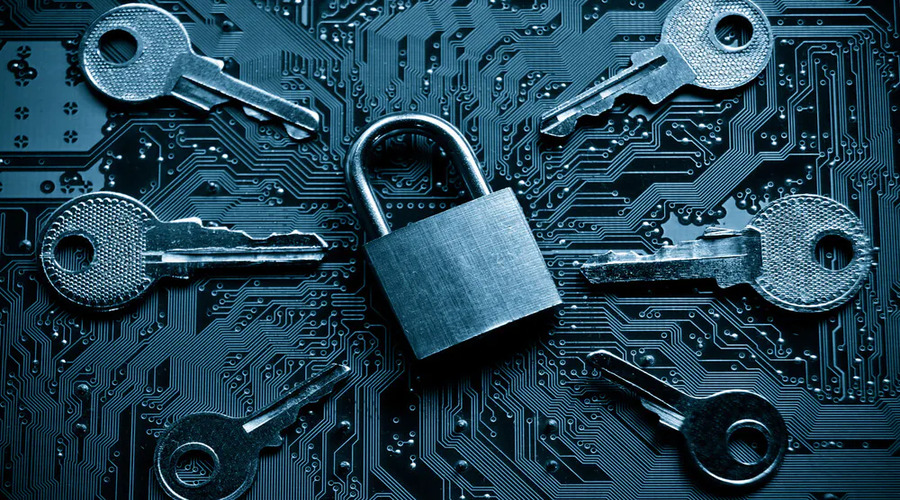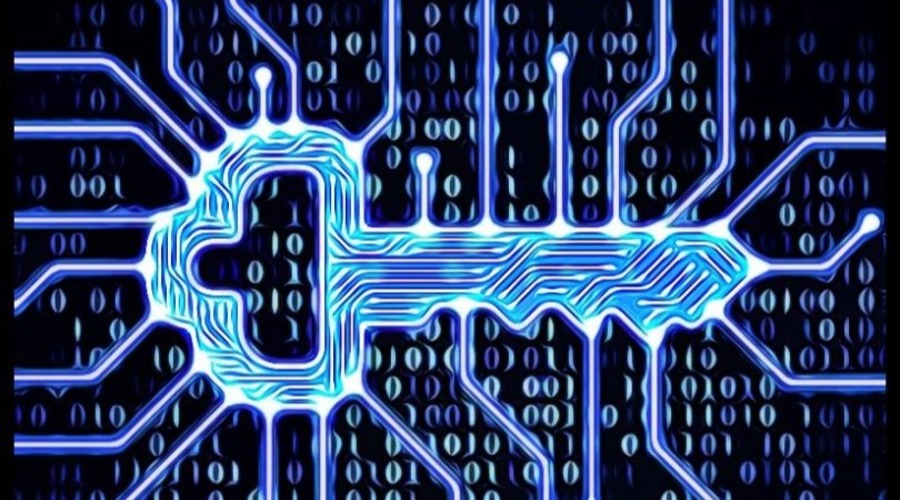The world of digital assets has been revolutionized by the emergence of Non-Fungible Tokens (NFTs). These unique digital tokens have gained immense popularity, enabling creators to sell and authenticate their digital artwork, music, videos, and even virtual real estate. With the increasing value and prominence of NFTs, it becomes crucial to understand the role of private keys in ensuring NFT security and integrity.
What are NFTs?
Before delving into the significance of private keys, let’s have a brief overview of NFTs. Non-Fungible Tokens are unique digital assets that can represent ownership or proof of authenticity for a specific item. Unlike cryptocurrencies such as Bitcoin or Ethereum, which are fungible and can be exchanged on a one-to-one basis, NFTs are indivisible and unique. Each NFT has its distinct value and attributes, making it irreplaceable and scarce.
Creating an NFT involves minting the token on a blockchain network, typically Ethereum. This process generates a smart contract that defines the unique characteristics and ownership of the digital asset. To ensure the security and integrity of the NFT, private keys play a crucial role.
Understanding Private Keys
Private keys are cryptographic codes that grant access and control over a specific NFT or digital asset. They are mathematically generated and consist of a long string of alphanumeric characters. Private keys are paired with public keys, which are used to verify ownership and facilitate transactions on the blockchain.
The private key serves as a digital signature, uniquely associated with the NFT owner. It is essential to keep the private key secure to maintain ownership and prevent unauthorized access or tampering.
The Significance of Private Keys in NFT Security
Private keys play a vital role in ensuring the security of NFTs. They are the key to the ownership and authenticity of digital assets. By safeguarding the private key, NFT owners can prove their exclusive ownership rights, protect against counterfeiting, and maintain the value of their digital assets.
Additionally, private keys serve as a means of preventing unauthorized access to NFTs. Since NFTs often represent valuable assets, protecting them from theft or unauthorized transfers is crucial. By keeping the private key secure, NFT owners can ensure that only authorized individuals can make changes or transactions involving their digital assets.
Best Practices for Securing Private Keys

To maximize the security of private keys, certain best practices should be followed:
- Use of hardware wallets: Hardware wallets offer enhanced security by storing private keys offline, away from potential online threats. They provide a dedicated device for securely managing and storing private keys, reducing the risk of key exposure.
- Encryption and backups: Encrypting private keys and keeping regular backups are essential steps in securing NFTs. Encryption adds an extra layer of protection to the private key, while backups ensure that even if the original private key is lost, a backup can be used to regain access.
- Secure storage: Ensure that your private keys are stored in a secure physical location, such as a safe or lockbox. Avoid storing them on easily accessible devices or in plain sight where they can be easily compromised.
- Strong passwords: When creating passwords for private key encryption or wallet access, use strong and unique combinations of alphanumeric characters, symbols, and upper and lowercase letters. Avoid using easily guessable passwords or reusing passwords across different platforms.
- Offline transactions: Whenever possible, consider conducting transactions offline to minimize the risk of private key exposure. Offline transactions involve signing the transaction with the private key on a secure, air-gapped device and then broadcasting the signed transaction using a separate, internet-connected device.
Common Mistakes to Avoid
While securing private keys is crucial, it’s equally important to avoid common mistakes that can compromise the security of NFTs:
- Storing private keys online: Storing private keys in online platforms or cloud storage services increases the risk of unauthorized access or hacking. It’s best to keep private keys offline or use hardware wallets.
- Sharing private keys: Sharing private keys, whether intentionally or unintentionally, can lead to the loss of ownership or even theft of NFTs. Private keys should be kept confidential and not shared with anyone.
- Phishing attacks: Be cautious of phishing attacks where malicious individuals or websites attempt to trick you into revealing your private keys or other sensitive information. Always double-check the authenticity of websites and communication channels before entering any private key-related information.
- Unsecured devices: Avoid accessing your private keys or conducting NFT transactions on unsecured or public devices. These devices may have malware or keylogging software that can compromise the security of your private keys.
The Risks of Inadequate Private Keys in NFT Security
The security of private keys is of utmost importance in the realm of NFTs. Inadequate protection of private keys can lead to various risks and potential vulnerabilities. Let’s explore some of the risks associated with poor private key security:
- Loss of Ownership: If you lose your private key and don’t have any backups, you could permanently lose access to your NFTs. This loss of ownership can be devastating, especially if your NFTs hold significant value or sentimental importance.
- Unauthorized Access: If someone gains access to your private key, they can control and transfer your NFTs without your consent. This can result in the theft or unauthorized sale of your digital assets, leading to substantial financial losses.
- Tampering and Counterfeiting: Inadequate private key security can enable malicious individuals to tamper with the ownership records or content of your NFTs. They could potentially create counterfeit NFTs that resemble your original creations, undermining the authenticity and value of your digital assets.
- Social Engineering Attacks: Phishing attacks and social engineering tactics are prevalent in the digital realm. Attackers may attempt to trick you into revealing your private key through deceptive emails, messages, or websites. Falling victim to these attacks can compromise the security of your private key and put your NFTs at risk.
- Vulnerabilities in Wallet Software: Wallet software and platforms used to manage private keys can have vulnerabilities or security flaws. It’s essential to use reputable and well-audited wallet software to minimize the risk of these vulnerabilities being exploited.
To mitigate these risks, it’s crucial to prioritize the security of your private keys and follow best practices for their protection. By doing so, you can safeguard your NFTs and maintain control over your valuable digital assets.
The Role of Education and Awareness
Promoting education and awareness about private key security is essential for the NFT community as a whole. Many NFT enthusiasts and collectors may be new to the concept of private keys and their significance in NFT security. By providing accessible resources, guides, and educational content, we can empower individuals to make informed decisions and take necessary steps to secure their private keys effectively.
NFT platforms and marketplaces can play a vital role in fostering education and awareness. They can implement security features, provide comprehensive guides on private key management, and offer resources to help users understand the risks and best practices associated with private keys.
Furthermore, the NFT community can contribute to education by sharing knowledge, experiences, and security tips. Discussions, forums, and social media platforms can serve as valuable spaces for individuals to learn from each other, share insights, and raise awareness about the importance of private key security.
By collectively prioritizing education and awareness, we can establish a stronger security culture within the NFT community and help individuals protect their digital assets for the long term.
Ensuring Long-term NFT Security
To ensure the long-term security of NFTs, it is advisable to update and change private keys periodically. By changing private keys, NFT owners can minimize the risk of a key compromise or unauthorized access. Staying vigilant, keeping up with security practices, and being aware of potential threats is essential in maintaining the security of NFTs.
Regularly updating your software, using reputable NFT platforms and marketplaces, and staying informed about emerging security threats are additional steps you can take to ensure the ongoing security of your NFT investments.
Conclusion
In the evolving landscape of digital assets, NFTs have emerged as a transformative technology. Private keys play a critical role in securing the ownership, authenticity, and value of NFTs. By understanding the significance of private keys and implementing best security practices, NFT owners can safeguard their digital assets and confidently participate in the vibrant world of NFTs.
FAQs
Q: What happens if I lose my private key?
Losing your private key can result in permanent loss of access to your NFTs. It’s crucial to keep multiple backups and take necessary precautions to prevent the loss of private keys.
Q: Can someone else access my NFTs if they have my private key?
Yes, if someone gains access to your private key, they can control and transfer your NFTs. It’s vital to keep your private key secure and not share it with anyone.
Q: Are private keys the only security measure for NFTs?
Private keys are a fundamental security measure, but additional layers of security, such as multi-factor authentication and encryption, can further enhance NFT security.
Q: How often should I change my private key?
Changing your private key periodically, especially when you suspect it may have been compromised or to maintain good security practices is recommended.
Q: Are hardware wallets necessary for NFT security?
While hardware wallets offer an additional layer of security, they are not mandatory. However, they provide increased protection against online threats and are highly recommended for NFT owners seeking robust security measures.
